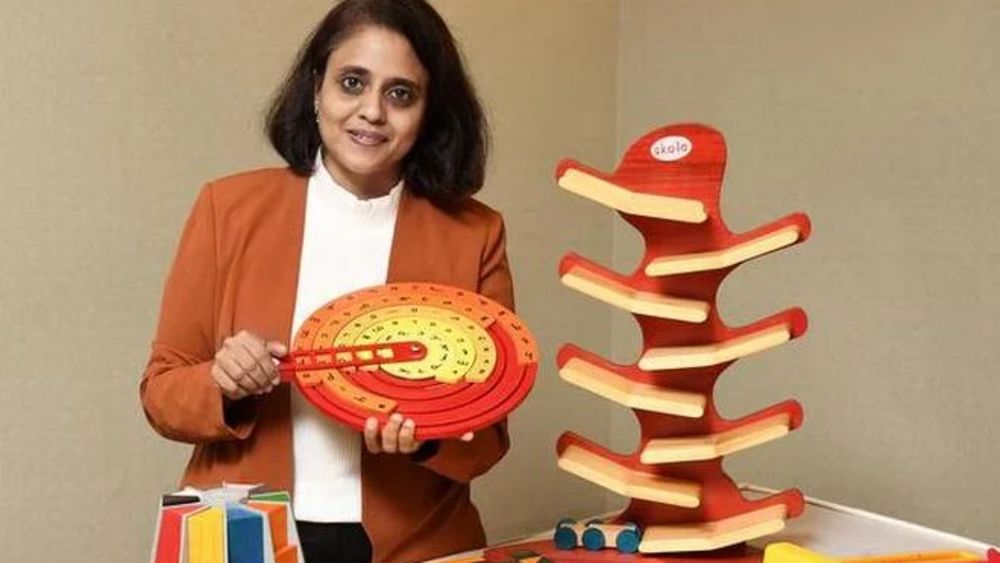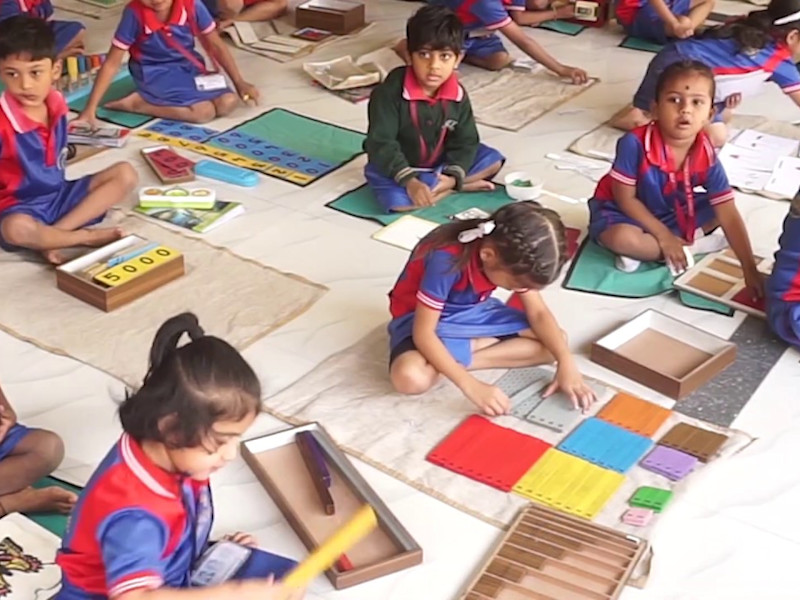- Iterate
- Meet The Team
- The Entrepreneur Fighting India’s Literacy Problem Wants Preschool to Be Fun Again
The Entrepreneur Fighting India’s Literacy Problem Wants Preschool to Be Fun Again
2020 was the year of online learning, one that saw India invest over $2.2 billion in education startups. But according to Mridula Shridhar, the founder of Kreedo, India’s mass learning poverty cannot be solved with just technology and it certainly cannot happen overnight. In fact, the key is to start early and make it fun.

2020 was the year of online learning, one that saw India invest over $2.2 billion in education startups. But according to Mridula Shridhar, the founder of Kreedo, India’s mass learning poverty cannot be solved with just technology and it certainly cannot happen overnight. In fact, the key is to start early and make it fun. Launched in 2012, Kreedo specializes in early education by working with privately run preschools across the country to improve learning outcomes.
Kreedo creates business kits for independent pre-schools and offers standardized curriculum, materials, teacher training, and assessment tools through a one-time fixed cost + ongoing pay-per-child model. It also practices an activity-based learning model and has an in-house educational toy and games production unit. In less than a decade, Kreedo has set up 1,500 schools, trained 5,000 teachers, and taught over 300,000 children across the country.
The Org interviewed Mridula to learn more about India’s education landscape, its challenges, and how Kreedo has played a role in shaping early education in the country.
How did you start your journey in the education sector?
It actually started with my mother in 1992. Seeing a gap in the educational toys market, she launched a manufacturing unit at home that made toys ranging from $10 to $100 dollars for Kindergarten schools in India. After completing my studies in 2000, I joined her business, Kido Enterprises, to help with international expansion. Four years later my husband, who has a tech background, joined the business as well.
It was while working here for over a decade that I realized India also lacked innovative and effective teaching solutions at the preschool level. In 2012, my husband and I launched Kreedo, a turnkey solution that worked with preschools across the country – from teacher training and curriculum setting to branding and assessments.
Why did you choose to focus on early education?
India’s illiteracy levels are still over 35%. Most solutions to tackle this issue, whether driven by the government or the private sector, focus on higher classes. Providing quality education in the early years, especially in low resource settings, is crucial to helping children learn effectively in the later years. Learning outcomes for life are found to be closely linked to the quality and quantity of early education that the child has an opportunity to go through.
In many parts of India, especially in rural areas and low-income households, there’s a high drop-out rate at the preschool level. Parents feel that the cost of education isn’t worth the quality of education, further reinforced by teacher absenteeism and low grades. Our focus is to provide a playbook to increase learning outcomes, increase admissions and decrease teacher attrition. Through this we hope to create the environment for both the children and their families to take education seriously as well as strengthen the foundation for the education sector in the country to ensure more students graduate high schools and colleges.

What types of schools you work with and how?
We essentially work with two types of schools:
-
Privately-run preschools in urban areas: With an annual fee between $,1500 and $10,000, these schools largely cater to the middle/upper-middle class in urban cities. They tend to be neighborhood businesses primarily owned and operated by female entrepreneurs who are passionate about education but need guidelines on how to run an educational institution with minimal intrusion. We partner with these entrepreneurs, provide a playbook and hands on training to help them set up and run preschools under their own brand name. We currently work with 1500 such preschools across the country that have impacted over 300,000 children.
-
Affordable Private Schools (APS) catering to the low-income population: With a fee between $1,500 -$2,500 per year, these schools cater to the majority of young children in India who are often first-generation learners. It’s estimated that there are over 300,000 such schools across the country. These institutions often have budgetary issues, high teacher attrition, and often need structured programs. We partner with them by setting up activity labs, progress reports, and teacher training. We are working on expanding this segment and currently work with 250 Affordable Private Schools across the country.
As an organization, why is Kreedo set up for success?
First and foremost, we have over 3 decades of experience in the early childhood sector, starting with my mother’s toy business. Since then we have worked with over 1,000 women entrepreneurs and over 1,500 preschools across the country. Additionally, we have our own manufacturing unit, which allows us to create and innovate with educational products at an affordable cost. We are also a women-led company, with 60% of our workforce being women who are passionate about education.
Lastly, before we had started working with other preschools in 2012, I had actually launched my own preschool for a couple years to understand the work from the inside out and its challenges. By running my own school, we were able to test our assumptions, and learn all aspects of managing a preschool with minimal teacher intervention.
How did 2020 impact your preschools and what do you see as the new normal in this sector in India going forward?
2020 was a unique year but we were able to adapt. We implemented home learning solutions – toy boxes, books and activity planners - and trained teachers and parents as well. Not only did this reduce any big disruptions in learning, it also allowed the schools to continue to survive and charge tuition fees (while many others in the country had to shut shop).
While many pure edtech players are entering the markets, we find their focus is on inputs like the number of children enrolled or the amount of time spent on apps, and mostly high income groups. Our focus is clearly improving learning outcomes largely via affordable in-school private education. The crisis has propelled us towards outcome based “phygital” solutions with a combination of activity based learning supported by books and technology.
On what’s in store, here’s a couple things we expect to see:
- Parents might want their kids to go to smaller, independent schools vs. large chains and also value activity-based learning over a more traditional approach. This is a wave that we hope to ride on.
- In rural areas, especially in the farming communities that were negatively impacted, we might see a higher drop-out rate or more family members chipping in for the child’s education.
- The urban poor might switch from more expensive schools to more affordable options.
Overall, parents will expect better quality education and individualized learning at affordable options and we hope to support a higher number of preschools planning to make that change.
--
The Org is a professional community where transparent companies can show off their team to the world. Join your company here to add yourself to the org chart!
In this article


The ORG helps
you hire great
candidates
Free to use – try today